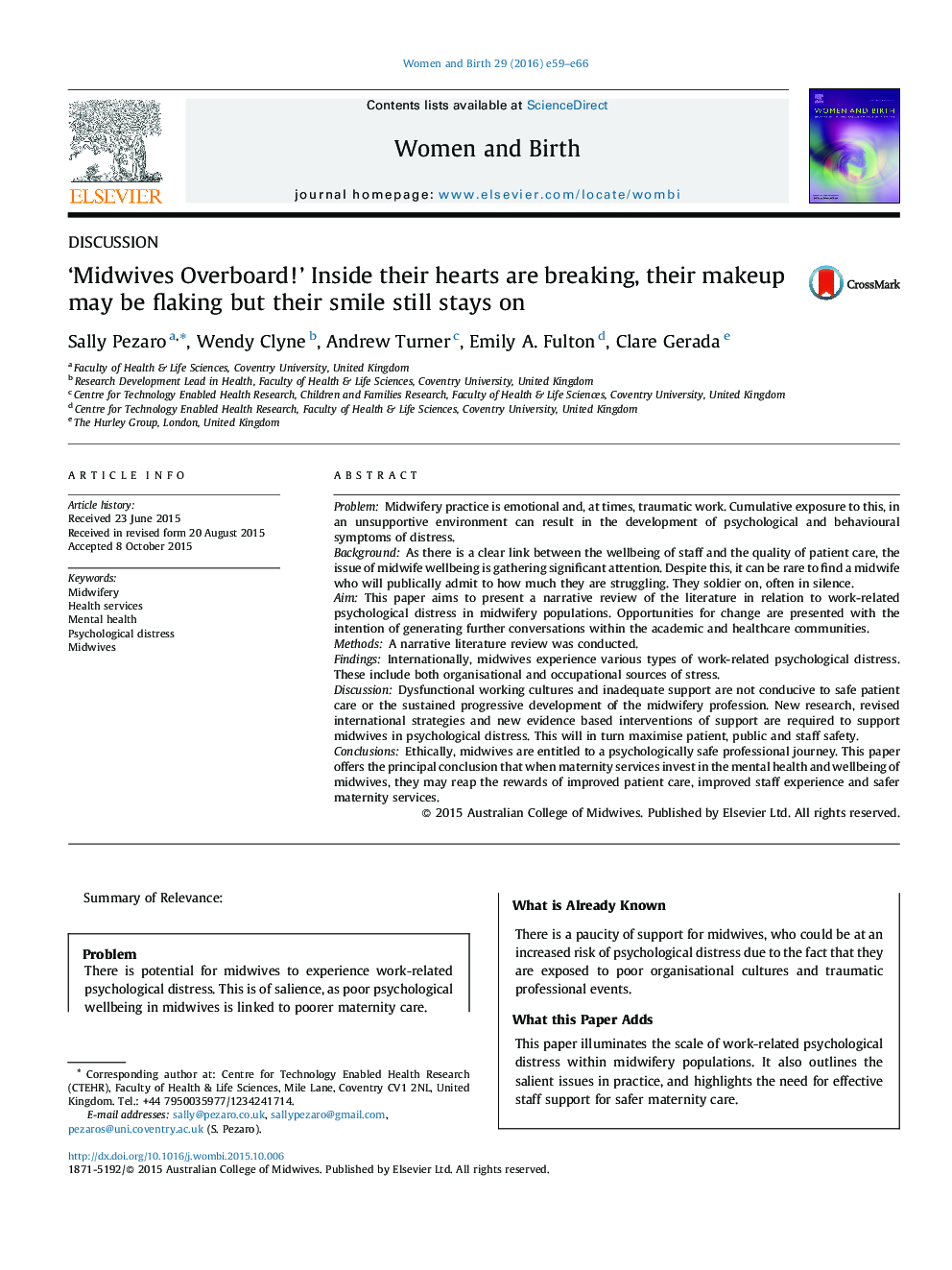| Article ID | Journal | Published Year | Pages | File Type |
|---|---|---|---|---|
| 5866141 | Women and Birth | 2016 | 8 Pages |
ProblemMidwifery practice is emotional and, at times, traumatic work. Cumulative exposure to this, in an unsupportive environment can result in the development of psychological and behavioural symptoms of distress.BackgroundAs there is a clear link between the wellbeing of staff and the quality of patient care, the issue of midwife wellbeing is gathering significant attention. Despite this, it can be rare to find a midwife who will publically admit to how much they are struggling. They soldier on, often in silence.AimThis paper aims to present a narrative review of the literature in relation to work-related psychological distress in midwifery populations. Opportunities for change are presented with the intention of generating further conversations within the academic and healthcare communities.MethodsA narrative literature review was conducted.FindingsInternationally, midwives experience various types of work-related psychological distress. These include both organisational and occupational sources of stress.DiscussionDysfunctional working cultures and inadequate support are not conducive to safe patient care or the sustained progressive development of the midwifery profession. New research, revised international strategies and new evidence based interventions of support are required to support midwives in psychological distress. This will in turn maximise patient, public and staff safety.ConclusionsEthically, midwives are entitled to a psychologically safe professional journey. This paper offers the principal conclusion that when maternity services invest in the mental health and wellbeing of midwives, they may reap the rewards of improved patient care, improved staff experience and safer maternity services.
